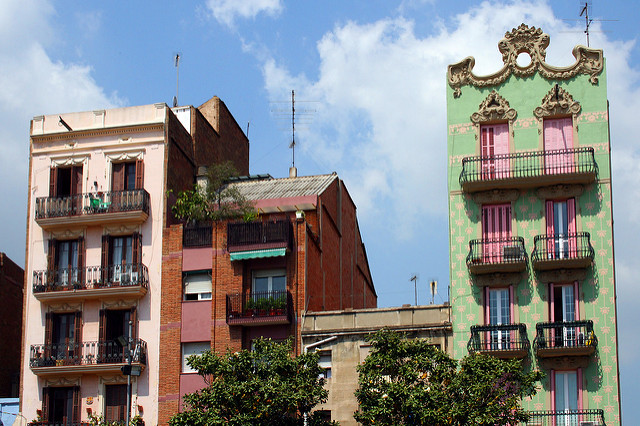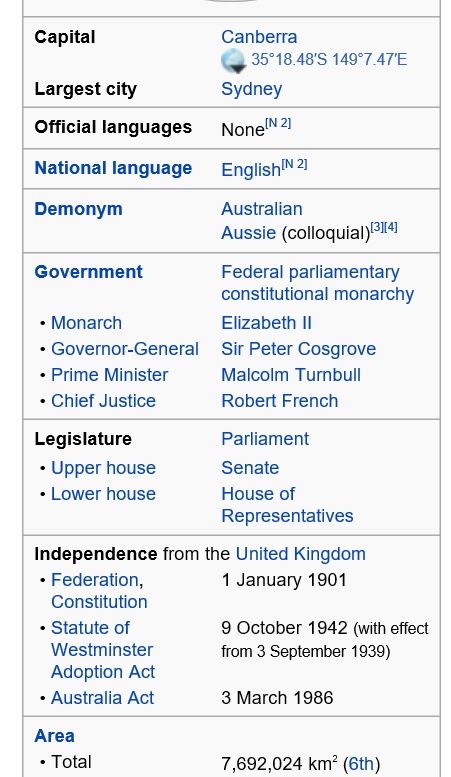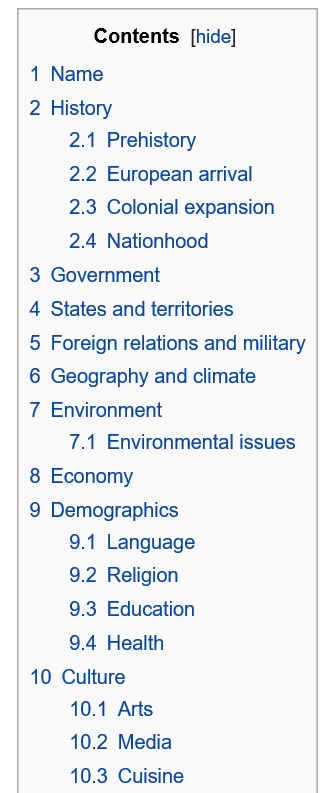If you want to totally dominate your exchange student interview, you’ll love this guide.
Let’s face it:
Being interviewed can be extremely stressful and nerve-wracking.
However, follow the step-by-step tips in this guide and I guarantee that you’ll go into your student exchange selection interview feeling well-prepared and ready for whatever the selection panel throws at you.

1. Calm your nerves by getting in the right headspace
Just about everyone experiences nerves and tension before and during an interview.
Here are three quick and easy ways to minimise those and have a positive attitude going into your exchange program interview.
Have a “Plan B”
A great way to take the pressure off yourself prior to your interview is to ask yourself this question:
If I don’t do well at this exchange program interview, and don’t get offered an exchange with this particular exchange program, what are my fallback options?
You most likely will have several different options open to you, including the following:
- You can apply to go on exchange with another program
- You can wait a year and apply to the same program next year
- Later on, you can go on exchange to your chosen country as a university exchange student
- You can go on an extended holiday to your chosen country
That’s the thing:
Even in the very unlikely case that you totally screw up your exchange student interview, it won’t be the end of the world – you’ll still have plenty of opportunities to get overseas to the country you are interested in.
Of course, you will try your best to be selected.
But, in the worst case scenario, there’ll always a “Plan B” open to you.
Understand that it’s not an exam
It’s easy to view your exchange student interview as a kind of oral examination, where you’ll be knocked out of contention if you give an incorrect answer.
That simply isn’t the case.
In fact, the main point of a student exchange interview is for the student exchange organisation to get to know you as a person and to assess whether you’d be a good fit as a foreign exchange student.
The interview is less like an oral examination, and more like a 20-30 minute discussion about yourself.
Can you talk about yourself for between 20 and 30 minutes? Of course!
You may be asked some general knowledge questions – see “Do your homework”, below – but overall, there will be very few right and wrong answers in your interview. So, try to relax.
Don’t over-estimate the competition
A common mistake people make in job interviews is over-estimating the quality of their competition, and under-estimating their own qualities as a candidate.
Don’t make the same mistake prior to your student exchange interview.
Here’s the truth:
You are a quality candidate with many strengths. If in doubt, take another look at all of the achievements you outlined in your student exchange application.
Furthermore, everyone else who is being interviewed and competing against you for the opportunity to go on exchange will be experiencing the same nerves as you.
Give yourself the best chance possible by going into your interview with a cool head.
2. Focus on, and optimise, things that you can control
There are aspects of your exchange student interview that will be within your control, and aspects that will be outside your control.
The key to good preparation is to perfect the things you can control, and prepare as well as possible for the things you can’t control.
In the “outside your control” box, I’d place the following:
- the exact questions that the interview panel will ask you
- the temperament or attitude of your interviewers
- the strength of your competition (ie other students being interviewed for exchange)
Don’t get hung up on these things. The best you can do is prepare well for them, using the techniques and strategies I set out in the rest of this article.
There are plenty of other things that you can control about the interview that you should work on to maximise your chance of success. These will include the following:
- your appearance (including how you are dressed and how generally neat and tidy you look)
- how well-rested you are (make sure to have at least a week of long, restful nights before your interview)
- punctuality (making sure that you arrive at the interview venue in plenty of time)
- your general level of preparedness for the interview
Make a list of all the things about your interview that you can control. Then, resolve to improve or perfect those things as much as possible. Ultimately, you want all of the things you can control to be 100 per cent right.
Don’t obsess about things that you can’t control.
There are a huge number of things to do with your pre-exchange interview that you can control. Spend your time and energy getting those things right and you’ll give your chances of success a huge boost.
3. Boost your confidence and add credibility by reviewing and learning your written student exchange application

Don’t make the critical mistake of submitting your written exchange application and then not re-reading it prior to your interview.
In fact, I recommend that you not only read it again before your interview, but study and learn it by heart before your interview.
Here’s why:
If you followed my previous advice, your written application will have been chock-full with high-quality, pertinent facts about experiences and skills that you could bring to a student exchange.
The people interviewing you will have read your written application and are going to ask you questions about what you’ve written. Unfortunately, there’s no knowing which of your claims the interviewers are going to ask you about.
That means that, in order to be credible, you need to be prepared to answer questions about every single fact or claim that you made in your written application.
The best preparation is to go through your written application line-by-line, reminding yourself about the evidence you gave and preparing yourself to answer questions on that evidence,
Say, for example, you mentioned in your written application that you’d had a leadership position in your school. Be prepared to answer the following questions about that position:
- How did you get the position – for example, were you selected by school staff, or elected by your fellow students?
- What were your duties while you were in that position?
- Can you think of a particularly challenging situation which occurred while you were in the position, and how did you deal with it?
Keep in mind that your interviewers are trying to assess whether you will make a good exchange student. So, if possible, try to memorise details about your experience which demonstrate that you are:
- capable of acting independently
- able to get on well with strangers
- able to adapt to new situations
- academically diligent
4. Do some homework and be prepared for general knowledge questions
I almost guarantee that the interview panel will ask you some general knowledge questions at your student exchange interview.
The reason why this is almost inevitable is simple:
If you are successful and become a foreign exchange student, people you meet in your host country will be curious about where you come from. The people interviewing you will want to know that you are able to answer basic questions about your home country.
So, before your exchange program interview, be sure to brush up on general knowledge about your home country, including the following:
- The approximate size of its population
- The name of the president, prime minister, or other head of state
- The number of levels of government (federal, state, municipal, and so on)
- A few basic facts about the economy – for example, main exports, largest companies, main sectors of the economy in which people work
A good starting point for this research is the Wikipedia page for your home country. Specifically, look at the fact box on the right hand side of that page. The fact box for Australia looks like this:
See that?
Wikipedia already gives you a neat little summary of facts about your home country. Learn those, and you’ll already be well set up with general knowledge for your interview.
If you want to go one step further and do some black-belt level preparation, check out the contents table on the left hand side of the Wikipedia page, which should look something like this:
An even better way to prepare for interview questions about your home country would be to find out and memorise 5-6 facts about each of those facets of your home country listed in Wikipedia – its economic strengths and weaknesses, demographic facts and trends, and so on.
Either way, you’ll be well-prepared for any general-knowledge questions about your home country.
Bonus tip: Learn something about the exchange organisation
There’s a possibility that the interview panel will ask you a question about the exchange organisation you’re applying with – something like “What do you know about Rotary/AFS/YFU?”
Or, if you’re exchanging as part of a twin cities arrangement, you may be asked what you know about the twinned city which you’ll be exchanging to.
Virtually no-one will be able to answer that question well or in any detail.
No-one, that is, except you. =)
As part of your homework before your interview, make sure to read up about the exchange organisation or twin city, and commit five or six relevant facts to memory which you can use if required.
5. Conserve energy to maximise your performance in the interview

When planning ahead for the day of your student exchange interview, you need to ensure that you organise the day so that you conserve your energy as much as possible until the time your interview starts.
Let me explain:
Everyone has a certain amount of mental and physical energy. Think about it like water in a drinking glass.
At the beginning of the day, most people’s glass of energy is full. When your glass is full, you are alert, can concentrate, and can think clearly.
Throughout the day, you take sips of energy from your glass. Sometimes the sips are small ones – like when you have a conversation with a teacher or friend, or sit in class. At other times, the sips are big ones – like when you have to give a presentation in front of your class, or have cross-country practice after school.
You can top up your energy glass by relaxing, having a meal or a nap. But, by the end of the day, your glass is usually empty.
Keep it topped up and full on the day of your interview
Now, on the day of your exchange interview, you need to ensure that your energy glass stays as full as possible right up until the time of your interview.
Here’s how to do it:
Step 1: Give yourself plenty of time
Stress is a big energy drain.
The last thing you need is to be panicking and rushing around.
Make sure that you allow plenty of time to get yourself ready, prepare, and travel to the venue where your interview is being held.
Step 2: Keep things as normal and calm as possible
Start your day in the same way as you would any other day. Shower, dress and have breakfast in the normal way.
Make sure it’s a good breakfast, too – you’ll need the energy later on.
If you want to have a brief look at your exchange application, that’s OK. But keep it to ten minutes or less. Spending too much time thinking about your application and the interview will cause you stress, draining your energy too quickly. Again, you need to conserve all your energy for the interview.
Step 3: Get someone to drive you to the interview venue
Even if you can already drive, you need to get someone to drive you to the interview.
If it’s a long drive, the driving will tire you out and use up valuable energy.
More importantly, having someone to talk to on the way will take your mind off the interview and stop you from worrying away all of the energy you’ll need to perform well.
Don’t get the other person to coach you or ask you pretend interview questions. That will stress you out and use up your valuable energy. Instead, talk about TV, or baseball, or shoes, or whatever else helps you to relax.
Step 4: Top up and conserve your energy at the interview venue
Take a snack along with you and eat it 10-15 minutes before your interview. If your stomach is empty you’ll be distracted and won’t have the energy to concentrate for the whole interview.
Take a quick – two or three minute – look at your application, but no more. Your learning and memorising should all be done.
Follow all of these steps, and you should go into the interview room feeling as fresh and relaxed as possible, with plenty of energy to focus on the interview.
6. Make sure you can focus during your interview by minimising distractions
Most people have one or two things that stop them from focussing and concentrating.
For example, until I’ve showered and brushed my teeth in the morning, I feel half asleep and barely functional. Before I’ve done those things, I am too irritable and distracted to achieve anything.
Most people have one or two such personal “irritations”. There are also a number of common irritations which make it hard for nearly everyone to concentrate, including the following:
- Needing to use the bathroom
- Feeling hungry or thirsty
- Feeling too cold or (especially) too hot
You need to take steps to minimise both your personal and these general distractions during your student exchange interview so that you can pay proper attention to the questions the panel is asking you, and formulate good answers.
Visit the bathroom before you leave home, after you arrive at the interview venue, and as often as you need to before your interview.
Bring a snack and a bottle of water, and take the water into the interview room if you need to.
Plan to dress in layers, and remove and add layers as required to stay at a comfortable temperature.
Do whatever it takes for you to block out any “noise” during your exchange student interview and focus on answering the panel’s questions.
7. Make your first impression on the interview panel a good one

There’s a well-known flaw in the human brain that you can use to your advantage in your exchange interview.
The flaw works like this:
When you or I meet someone new, we observe how that person acts for the first minute or two, and then assume that that he or she acts that way all of the time.
The people conducting your pre-exchange interview will also suffer from this flaw. They’ll assume the way you conduct yourself in the first few minutes of your interview is the way you conduct yourself all of the time.
Is this a bad thing?
Not necessarily. In fact, here’s how you can make that flaw work for you:
If you come across as being professional and courteous during the first couple of minutes of your exchange interview, the interviewers will assume that you behave professionally and courteously all of the time.
You can make a great first impression on the interview panel by doing the following:
- Dressing conservatively and well – Males should wear a button-up shirt and trousers (no jeans), and black leather shoes. Females should wear a skirt or dress.
- Being punctual – Plan to arrive at least half an hour before your scheduled interview time, and phone in advance as soon as it becomes apparent that you are going to be late
- Greeting them appropriately – Shake the hand of each person on the panel and calling each person on the panel “Mr X” or “Ms Y”, or “Sir” and “Madam” once they’ve introduced themselves
- Smiling – It costs nothing, but makes a big difference to how people perceive you
8. Know what questions to expect, and how to answer them
You can’t anticipate every question that the interview panel is going to ask. However, it’s likely that the questions the panel will ask you will include the following:
“Why are you interested in going on exchange”?
- Purpose – Usually, this will be a “warm-up” question which is intended to break the ice and help you settle into the interview
- How to answer – There is no right or wrong answer, so answer as honestly as possible
“Tell us about yourself”
- Purpose – This is another “warm up” question, although it can also help the panel to assess how you go with introducing yourself to strangers
- How to answer – Don’t ramble or tell your life story – six or seven key facts about yourself is sufficient. If the panel hasn’t already asked you why you want to go on exchange, mention the reasons at the end.
“Why do you think you’d make a good exchange student?”
- Purpose – To assess how well you understand the role and desirable traits of an exchange student
- How to answer – Reiterate some of the facts from your written student exchange application which demonstrate why you’d make a good exchange student.
“Tell us about your strengths and weaknesses”
- Purpose – To test your honesty, maturity and self-awareness. Generally speaking, the most successful exchange students all share these traits.
- How to answer – Don’t brag about what you consider to be your strengths. When it comes to discussing weaknesses, mention one or two – no need to go overboard! – and discuss what you do to overcome those weaknesses
“Why have you applied to go to (country X)? If you miss out on selection for (country X), would you consider going on exchange to another country?”
- Purpose – To uncover your motivations for going on exchange and simply to find out whether you’d be open to going on exchange to a country other than your first choice.
- How to answer – You can and should be totally honest when answering this question. Don’t say that you’d be happy to go to France if your heart is really set on going to Spain – you may well be sent to France. If you are sitting in a Rotary interview, for example, it’s quite OK to say that if Rotary doesn’t offer you an exchange to Spain, you’ll consider applying to another exchange program.
“What would you do if you weren’t getting along with your host family?”
- Purpose – To assess your judgement and knowledge of how to solve problems appropriately
- How to answer – If you have an issue with your host family that you can’t resolve directly with the family, you need to contact your exchange program coordinator or counsellor.
“Can you give an example of a difficult situation you’ve been in, and talk about how you overcame the difficulties?”
- Purpose – Again, the purpose is to assess your judgement and resourcefulness
- How to answer – Try to think of a situation where you faced a challenge similar to those faced by exchange students – where you had to act without the support of your biological parents, or were in a different culture, or had to overcome communication difficulties. The focus of your answer should be on the solution you found, rather than the problem itself.
9. Answer all questions professionally

Irrespective of the specific questions the exchange interview panel asks you, there are a few basic rules you need to follow when answering their questions in order to make a good, professional impression on the panel.
First of all, you are going to establish and maintain eye contact with the members of the panel while you answer each question. Many people find a lack of eye contact disrespectful and evasive. Conversely, making eye contact conveys an impression of confidence and certainty in your answers.
Then, you are going to use appropriate language to answer the panel’s questions. Remember, you aren’t talking to your school friends. You are talking to a group of 40- or 50-something adults who are most likely in the middle of a long and tiring day of interviews. You need to cater to your audience by:
- saying “yes” and “no” instead of “yeah”, “yup” and “nope”
- not using the word “like” unless you are expressing your affection for a particular thing
- never, under any circumstances, swearing in your exchange student interview (even mild variants like “crap” are a no-no)
Also, try not to ramble. In general, you want to give “Goldilocks” answers, which are not too long, not too short, but just right. Two or three examples in support of each answer you give is plenty.
Within reason, you need to defer to the panel. In the event a panel member corrects you, or disagrees with something you say, just thank him or her by saying “Thank you, I wasn’t aware of that” or something similar. Arguing with a panel member about a particular fact or situation won’t get you the exchange you want.
10. Wrap it up well to leave the panel with a good final impression
When the interviewers from the exchange program have asked all their questions, you’ll most likely have a very strong urge to get out of the interview room.
Not so fast. There are still a couple of things to take care of.
Use your question to the panel to make one more positive impression
First of all, the panel may tell you that the interview is over and ask you if you have any questions before leaving. Most people are so keen to escape that they just say “no”. In doing so, they pass up a golden opportunity to make one final, good impression on the interview panel.
If the exchange interview panel asks you whether you have any questions, I recommend asking the following:
If my application with [Rotary/AFS/YFU/other program] is unsuccessful, is there anyone I can call to discuss the reasons why I wasn’t successful, and learn how I might do better next time?
This is a great question for a number of reasons:
- It shows that you are humble enough to have considered the possibility that you won’t be successful
- It demonstrates a willingness to learn from your mistakes
- It lets the panel know that you are interested enough in going on exchange to consider re-applying if you aren’t successful the first time around
Try it.
Thank the panel members sincerely for their time
Don’t leave the interview room without saying thank you to your interviewers. They most likely are volunteers who have given up their weekend, evening or other spare time to interview you.
There is no need to go overboard – just say something like “thank you all for your time, it was good to meet you” in a way which shows that you mean it.
11. Don’t over-analyse the interview afterwards
Once your exchange student interview is over, the very best thing you can do is forget about it.
Think about it:
You can’t change anything once the interview is done.
There’s also no objective way of knowing whether you performed well or not. In fact, you are almost certain to believe that your interview went significantly worse than it actually did.
Also, a watched pot never boils. If you spend every waking minute obsessing about your interview and wondering how you went, the time until you find out the outcome will drag on and on.
So, let it go. Go back to your ordinary life. Focus on school and sports and music for a couple of weeks until you hear the outcome of the interview.
If you worry about the interview and your application in the meantime, just spend some time thinking about the Plan B I talked about under heading 1 above. There are always other options for you to explore.
Good luck,
Matt





